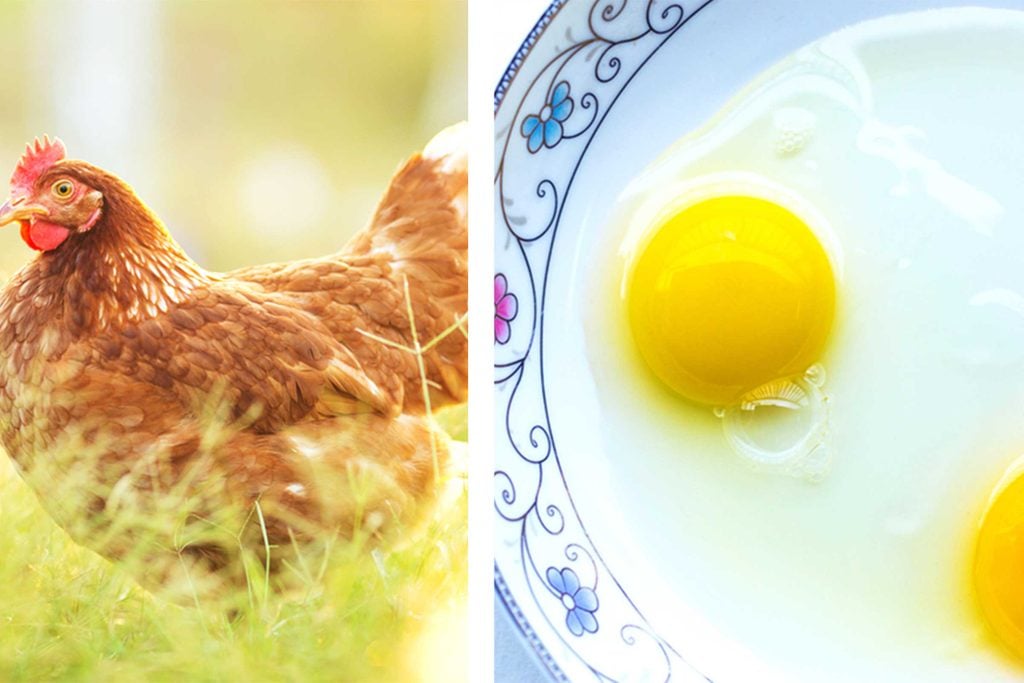Here’s What an Egg’s Yolk Color Really Means
Updated: May 04, 2021
To reap the most nutritional rewards from your eggs, you need to know this well-kept secret.
 We want to let you in on a little secret: Not all egg yolks are created equally. In truth, their color reveals a lot more about what you’re eating than you could have thought.
We want to let you in on a little secret: Not all egg yolks are created equally. In truth, their color reveals a lot more about what you’re eating than you could have thought.
The color of an egg’s yolk depends on the grain that the chicken is fed, according to Shareably. Plus, it can also reveal clues as to the chicken’s diet—both the type of food they eat as well as the diversity. We can thank a pigment found in plants called xanthophylls for the variance in yolk color.
If you shop at an American supermarket, you likely buy eggs with a bright orange-colored yolk. That’s because most American farmers feed their chickens with foods that contain xanthophyll and lutein extracts. A diet rich in marigold leaves, yellow maize, green feed like alfalfa, orange peels, algae, carrots, and annatto seeds creates the yolk’s orange tint.
On the other hand, a light-colored—almost white—yolk means that the chicken was fed sorghum, a grain that contains less pigmentation than yellow corn or carrots. If you live in the good old U. S. of A., it’s unlikely that you will come across a yolk this pale. (They’re actually more common in Africa!)
As for the egg yolks that are a reddish or red-orange color? That hue comes from a xanthophyll extract called zeaxanthin, found in dark red or green plants such as peppers, kale, spinach, and broccoli. These darker yolks tend to be richer in nutrients like omega-3s, carotenoids, and luteins, according to Broad Ripples Farmers Market.
Still, you can eat yolks of any color worry-free; all of them have amazing health benefits. The color of the eggs simply indicates the type of nutrients you’re consuming, not how many nutrients there are.
No matter their color, though, you should treat all eggs the same. The Food & Drug Administration recommends storing them in a refrigerator at least 40 degrees Fahrenheit in temperature. (By the way, this is why Americans refrigerate eggs and Europeans don’t.)
Ready to dig in? Check out how to make perfect scrambled eggs, plus some healthy ways to add nutrition to them, too.














